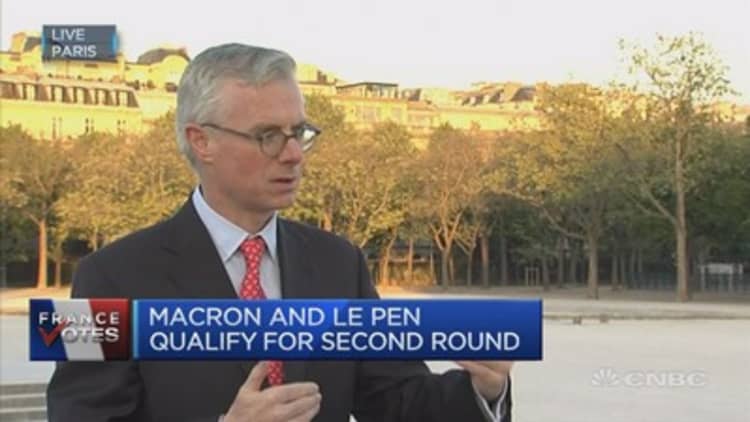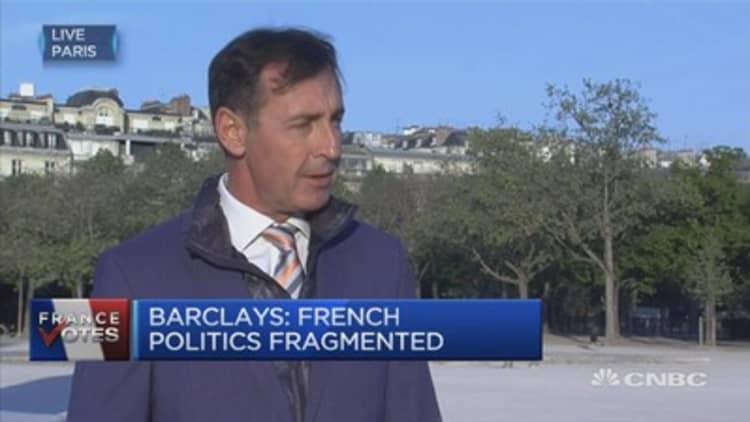Investors may have started pricing in a victory for centrist Emmanuel Macron in the runoff of the French presidency but the battle against the far-right leader Marine Le Pen is yet to be concluded.
CNBC takes a look at what separates Macron from Le Pen, and why a victory for the former might not be so straight forward.
Who are they?
The far-right candidate has taken on the leadership of the party founded by her father – Jean-Marie Le Pen. Marine Le Pen managed to get through to the second round of the French presidential election as voters have grown concerned with immigration, terrorism and security matters. This is only the second time in French history when the far-right has managed to reach the second round of the presidential vote. Jean-Marie Le Pen disputed the presidency against Jacques Chirac in 2002 but lost the runoff with a difference of about 65 percentage points. Marine Le Pen graduated from Panthéon-Assas University in Paris with a degree in law.
Meanwhile, Emmanuel Macron would be the youngest ever French president if elected. The 39-year-old politician began his career as an investment banker and though he has served as an economy minister for two years, in the last Socialist government, he has never run for public office until now. At the start of the campaign, most analysts said Macron was running in the 2017 presidential race as preparation for the election in five years' time. But the centrist, independent candidate decided to take his chances even without the backing of the Socialist Party.

What do they want to achieve?
"Regarding
Le Pen's platform has been based on a closed-door policy to immigration and has called for a tax on companies hiring foreign workers.
On the other hand, the bank added that Macron's plan includes "a further labor law, (aimed at making it less rigid) to be implemented before the Summer… Measures to improve governance (ministers will be assessed, and will be renewed every year; insistence on no criminal record) an audit of public finances; proposals on the future of Europe (euro area budget)."
The former investment banker has promised a Nordic-style economic model for France — making government spending cuts of 60 billion euros ($64.4 billion) while also implementing a stimulus package of 50 billion euros.

What are polls indicating?
The latest polls indicate that Macron will win the runoff this Sunday, but some have shown a narrowing in the gap with Le Pen. An
Looking at polls released by Ifop-Fiducial, voting intentions for Macron have dropped from 60.5 percent on April 25 to 59.50 percent on May 2.
"A number of left-wing figures have expressed
Furthermore, right-wing voters, who opted for the conservative candidate Francois Fillon could choose Le Pen if their main concern is immigration and, another key factor, is the possibility of a third event, such as a terrorist attack or financial scandal, he added. Fillon started the election as the frontrunner but fell to third place after investigations into the misuse of public funds.


